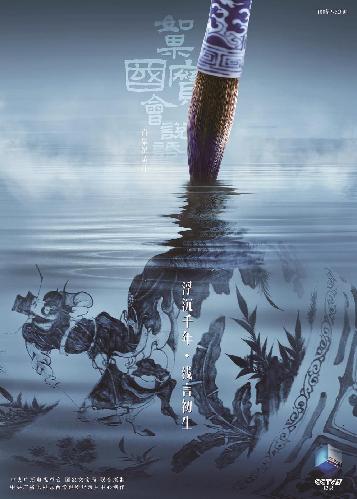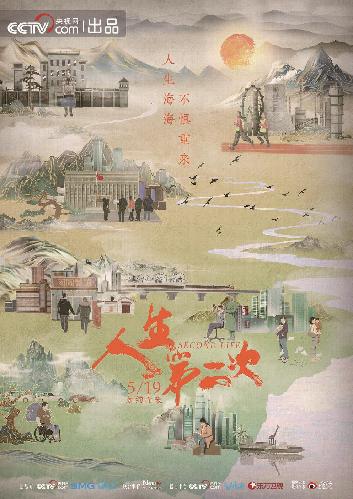Author: Xuan Jing
In recent years, documentaries have adopted multiple narrative techniques and innovative communication methods, allowing more people to see the beauty in ordinary life, showing unique charm and strong potential. According to the statistics of Yien, from 2018 to 2021, the production and broadcast volume of documentaries in my country will show a steady growth trend; in 2022, the production time of documentaries will exceed 90,000 hours, and the broadcast time will exceed 800,000 hours. The number of new documentaries on typical video platforms will be 1040. Department, the market heat and word-of-mouth both rose.


At the moment when documentaries are making great strides towards the “Internet generation”, the global documentary market is not in good times. The history-themed documentaries produced by Netflix (Netflix) are frequently questioned, and the natural-themed documentaries shot by BBC have also been exposed to fraud scandals. “We should awaken the proper posture of documentaries.” He Suliu, a professor at the Communication University of China, believes that although online documentaries contain great vitality, there are also problems with the rapid development. For example, the “short-sighted” phenomenon of blindly chasing hot spots, and the resources are heavily skewed to existing works and big IPs, resulting in convergence and imbalance in themes; the “blurred” phenomenon presented by intoxicated technology, extensive use of VR/AR technology, dazzling pictures but not serving the content ; The phenomenon of “failure” blindly pursuing traffic has lost the core value of this art category – “truth”.
Get rid of boring stereotypes and talk to young people with “real” souls
Truth is the most important feature of a documentary, and it is also the most direct power to hit people’s hearts. In recent years, it has become more and more common for historical documentaries to use actors to interpret “situation reproduction”. While pursuing “movie-level” audio-visual effects, how to grasp the boundaries of performance and ensure the authenticity of the work has become a problem that creators must face. Recently, the Netflix documentary “Cleopatra” has continued to spark controversy. Viewers pointed out that the characters, costumes, props, and historical events in the film do not conform to historical facts. At present, the Douban score of this 4-episode documentary stays at 2.3 points, while it only gets 1 point (out of 10 points) on the overseas film and television drama rating website IMDb, which can be called the lowest score ever.
As one of the directors of “Cleopatra”, Tina Garraway has also filmed the documentary “Finding the African Queen: Nzinga”, which tells the story of female rule in the kingdoms of Ndongo and Matamba (now Angola) in the 17th century author’s story. After the film was broadcast on Netflix, many people questioned that its content was full of errors and omissions, and even the accents of the actors were wrong. Dissatisfied Angolan viewers defined the film as a “pseudo-documentary” and accused the filmmaker of substituting lies for the truth, “slapping ‘facts’ in the face”. Some overseas historians and cultural scholars said that documentaries are obliged to verify the facts, and that only by taking scientific facts as the basis for filming can we ensure that history and civilization are not falsified.
At present, with the transition of media and the change of users, the development of documentaries has entered a new stage. Continuous innovation in digital shooting and production, virtual reality, aerial photography, VR and other technical fields has promoted the diversification of documentary content creation forms, and provided favorable conditions for enriching the visual effect presentation and user experience of documentaries. “Generation Z” has gradually become the main consumer group of documentaries, and documentaries with high concentration of knowledge and deep thinking are more in line with the needs of young users for high-quality film and television content. In terms of creative techniques, the documentary gradually breaks away from the previous stereotype of “serious and boring”, and uses more novel forms to attract online students. The documentary “Those Things in History” introduces the model of a small historical theater to break through the barriers of time and space between ancient and modern times, incorporates popular Internet memes, rap, etc., breaks the conventional style of documentary with a “stable” narrative, and explores grounding in serious historical stories angry side. This experimental series of documentaries has gained popularity among young users, with more than 70 million views on Bilibili.
It is worth noting that there are still some works that are keen to hype the privacy of celebrities, deliberately lead controversial topics, and blindly pursue eye-catching effects. The Netflix documentary “Harry and Meghan” claims to present the daily life of the British royal family, but the personal narrative is too forceful and the views are biased. question. In social and humanistic documentaries, the British Broadcasting Corporation (BBC) used various “camera language techniques” for psychological suggestion and emotional manipulation, which was even more criticized. In the end, these works were judged by the audience as “false at a glance” or “exaggerated”, which greatly dispelled the cultural significance and social value.
Highlight the value of culture and aesthetics, explore the operation of the whole industry chain with IP as the core
The growing thirst for knowledge among young people is the internal driving force behind the accelerated development of the documentary market. More and more young users tend to learn and improve themselves on the Internet, and the rise of pan-knowledge video content makes online documentaries a new scene for young people to learn. With the steady growth of scale, documentaries have provided young users with richer choices. Humanities and society, history and culture, and food are still popular themes, and a diversified creative pattern has been formed, including nature, biography, science and education, art, and astronomy. At the same time, the integrated media environment is reconstructing the relationship between documentary content and users. TV stations, video platforms and production companies are deepening cooperation models and exploring the possibility of operating the entire industry chain with IP as the core.
As the leading IP of gourmet documentaries, the “A Bunch of Life” series uses shots full of “smoke” to vividly show the hot street life on the roadside late at night, making the ordinary fireworks in the world instantly become unparalleled. The popular IP “But, There Are Still Books” series delicately tells the warm stories of book lovers, connecting the “fantasy drifting” of contemporary books. From the perspective of humanities, “The First Time in Life” and “The Second Time in Life” sincerely record the moments of ordinary Chinese people, and establish a new “label” of humanities documentaries. Why create a documentary IP? “At present, the input-output ratio of the documentary industry is still not completely equal.” Zhang Hao, chief producer of “Second Life”, believes that creating documentary IP will help maximize value, promote the healthy development of the industry, and allow audiences to watch to better works. “Only by creating IP and establishing our own label can we better leverage the value of documentaries and promote better development of the industry on the basis of profitability.”
However, the “IPization” of documentaries is also a double-edged sword. Once the creators lose their enthusiasm, they may suffer from “IP dependence”. In 2012, “A Bite of China” was born, which took food as the theme to intercept life sections, observe the life value and spiritual world of Chinese people, and once became the top-level food documentary in China. However, “A Bite of China 3”, which debuted in 2018, was complained about off-key themes, confusing logic, and slightly unbalanced details… What dissatisfied the audience most is that the content of the whole film showing the process of food production and tasting is thin, and the duration is not even as long as character interviews And Cookware Closeup. The “gold content” of the big IP of domestic documentaries has plummeted as a result, which makes people sigh.
To continue the vitality of documentary IP, creators need to settle down to take root in life, and muster the courage to develop and innovate. From 2018 to 2022, the micro-documentary “If the National Treasure Can Talk” insisted on innovation, applying cutting-edge technologies such as full-scale expansion, thermal sensing, micro-mark extraction, and high-precision 3D scanning to the shooting, integrating barrage, rap, New ideas such as animation continue to expand the possibilities of cultural relics documentaries. As the second part of the “Life Trilogy” IP, “Life Second Time” shows the choices and fates of ordinary people in the face of decisive moments from multiple dimensions and perspectives. The total number of broadcasts on the entire network exceeds 600 million. The chief director Qin Bo revealed that the film crew obtained a large amount of material through long-term shooting, and enriched the emotional concentration of the story from different levels and perspectives. When immersive observation, non-fiction writing and cinematic audio-visual language are integrated, cultural and aesthetic values can be fully demonstrated, and documentaries will gain inexhaustible creative vitality. (Xuan Jing)
[
责编:崔益明 ]
